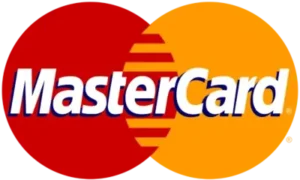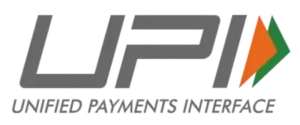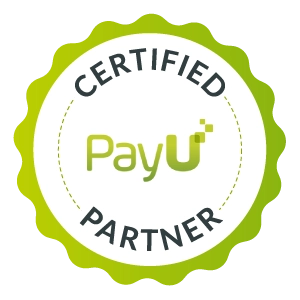In the ever-evolving world of digital marketing, Search Engine Optimization (SEO) remains a critical component for online success. While on-page SEO focuses on optimizing the content and structure of your website, off-page SEO is about enhancing your site’s authority and reputation through external efforts. Understanding and implementing effective off-page SEO techniques can significantly boost your search engine rankings and drive organic traffic to your site. This guide will walk you through various off-page SEO techniques with practical examples to help you master this essential aspect of digital marketing.
What is Off Page SEO?
Off-page SEO refers to all your activities outside your website to improve its ranking on search engine results pages (SERPs). It involves creating high-quality backlinks, engaging with your audience on social media, and establishing your brand’s presence across the web. Off-page SEO is crucial because search engines consider the number and quality of external links pointing to your site as a significant ranking factor. By implementing off-page SEO strategies, you can enhance your website’s authority, relevance, and trustworthiness.
Key Off Page SEO Techniques
Backlink Building
Backlinks, or inbound links, are links from one website to another. They are essential for off-page SEO because they signal to search engines that your content is valuable and trustworthy.
- Types of Backlinks: Do-follow vs. No-follow
- Effective Backlink Strategies: Create high-quality content that naturally attracts links, reach out to industry influencers for backlinks, and utilize broken link building.
Example: A blog post on “10 Best Practices for Digital Marketing” receives backlinks from various reputable marketing websites.
Social Media Marketing
Social media platforms are powerful tools for promoting your content and engaging with your audience.
- Leverage Social Platforms: Share your content on platforms like Facebook, Twitter, LinkedIn, and Instagram to increase visibility and attract backlinks.
- Case Studies: Analyze how brands successfully use social media to boost their SEO.
Example: Sharing a blog post on social media with engaging captions and hashtags to drive traffic and shares.
Guest Blogging
Guest blogging involves writing articles for other websites in your industry. It helps build relationships and earn high-quality backlinks.
- Identify Opportunities: Look for reputable blogs that accept guest posts and align with your niche.
- Approach: Pitch well-researched and unique content ideas to blog owners.
Example: Writing a guest post on a popular marketing blog about “Emerging Trends in SEO” with a link back to your website.
Influencer Outreach
Collaborating with influencers can significantly amplify your reach and enhance your SEO efforts.
- Find Relevant Influencers: Use tools like BuzzSumo or social media platforms to identify influencers in your industry.
- Effective Outreach: Build genuine relationships and propose mutually beneficial collaborations.
Example: Partnering with a well-known industry expert to co-create content or review your product.
Content Marketing
Creating valuable, shareable content is at the heart of effective off-page SEO.
- Types of Content: Blog posts, infographics, videos, podcasts, and eBooks.
- Shareable Content: Craft content that addresses your audience’s pain points and encourages sharing.
Example: An infographic about “The Benefits of Off-Page SEO” that is widely shared on social media and other websites.
Forum Posting
Engaging in relevant forums and communities helps build your authority and drive traffic to your site.
- Participate in Discussions: Answer questions and share insights on platforms like Reddit, Quora, and industry-specific forums.
- Build Authority: Provide valuable information and link back to your content when appropriate.
Example: Answering a question about SEO techniques on Quora with a link to your detailed blog post.
Blog Commenting
Leaving thoughtful comments on relevant blogs can drive traffic and build relationships with other bloggers.
- Best Practices: Make insightful comments that add value to the conversation and include a link to your website.
- Examples: Find high-authority blogs in your niche and engage with their content.
Example: Commenting on a marketing blog post about SEO trends with a link to your related article.
Directory Submissions
Submitting your website to reputable directories can improve your visibility and generate backlinks.
- High-Quality Directories: Focus on directories relevant to your industry and with good domain authority.
- Submission Process: Ensure your business information is accurate and up-to-date.
Example: Submitting your website to industry-specific directories like Clutch or Yellow Pages.
Local SEO
Optimizing your website for local search is crucial for businesses targeting local customers.
- Google My Business: Create and optimize your Google My Business profile.
- Local Citations: Ensure your business information is consistent across all local directories and review sites.
Example: Optimizing your Google My Business profile with accurate information and positive reviews.
Social Bookmarking
Social bookmarking involves submitting your content to social bookmarking sites to increase visibility and drive traffic.
- Effective Use: Share your content on platforms like StumbleUpon, Digg, and Reddit.
- Examples: Submit valuable content that can gain traction and attract backlinks.
Example: Bookmarking a high-quality blog post on a social bookmarking site to drive traffic and improve SEO.
Image and Video Submission
Submitting images and videos to relevant platforms can enhance your off-page SEO.
- Best Practices: Optimize your images and videos with relevant keywords and descriptions.
- Platforms: Use platforms like YouTube, Vimeo, Flickr, and Instagram.
Example: Uploading an informative video about “SEO Tips” on YouTube with a link to your website.
Document Sharing Sharing documents like PDFs, presentations, and eBooks on document-sharing sites can drive traffic and improve SEO.
- Platforms: Use sites like SlideShare, Scribd, and Issuu.
- Examples: Share informative and well-designed documents.
Example: Uploading a comprehensive guide on off-page SEO techniques to SlideShare.
Press Releases Press releases can generate media coverage and high-quality backlinks.
- Crafting Press Releases: Write newsworthy press releases and distribute them through PR platforms.
- Examples: Announce major company updates or new product launches.
Example: Issuing a press release about a new SEO tool launch and gaining media coverage.
Q&A Sites Participating in Q&A sites like Quora can drive traffic and build authority.
- Answering Questions: Provide detailed and helpful answers to relevant questions.
- Examples: Link back to your website when appropriate.
Example: Answering a question about off-page SEO techniques on Quora with a link to your blog post.
4. Advanced Off Page SEO Techniques
Broken Link Building Identify broken links on other websites and offer your content as a replacement.
- Identifying Broken Links: Use tools like Ahrefs or Check My Links.
- Implementation: Reach out to webmasters with suggestions for replacing broken links.
Example: Finding a broken link on a high-authority site and suggesting your content as a replacement.
Content Syndication Syndicate your content on high-authority sites to increase visibility and drive traffic.
- Benefits and Risks: Understand the potential SEO benefits and risks.
- Examples: Syndicate blog posts on platforms like Medium or LinkedIn.
Example: Republishing a popular blog post on Medium to reach a wider audience.
Brand Mentions Monitor and leverage brand mentions to build authority and drive traffic.
- Monitoring Mentions: Use tools like Google Alerts or Mention.
- Leveraging Mentions: Reach out to sites mentioning your brand and request a backlink.
Example: Noticing a brand mention without a link and contacting the author to request a link.
5. Measuring Off Page SEO Success
Tools for Tracking Use tools like Google Analytics, Ahrefs, and Moz to track your off-page SEO efforts.
- Key Metrics: Monitor backlinks, referral traffic, social signals, and brand mentions.
- Analyzing and Improving: Use data to refine and improve your strategies.
Example: Using Ahrefs to track new backlinks and analyze their impact on your rankings.
6. Common Off Page SEO Mistakes to Avoid
Identifying Common Pitfalls Avoid black-hat SEO techniques and focus on building high-quality links.
- Strategies to Avoid: Steer clear of link farms, spammy directory submissions, and keyword stuffing.
- Correcting Mistakes: Disavow bad links and focus on white-hat techniques.
Example: Identifying and disavowing toxic backlinks that harm your site’s authority.
7. Conclusion
Off-page SEO is a critical component of your overall SEO strategy. By implementing these techniques, you can enhance your website’s authority, drive organic traffic, and improve your search engine rankings. Remember, off-page SEO requires consistent effort and patience. For expert assistance, consult with Digital Marketing Helpline to take your SEO efforts to the next level.
8. Call to Action
For more insights and personalized strategies, contact us at Digital Marketing Helpline. Subscribe to our newsletter for the latest updates and tips on digital marketing. Check out our other blog posts and resources to continue your learning journey.
Internal Links:
- Link to related blog posts on Digital Marketing Helpline
- Link to service pages related to SEO and digital marketing
External Links:
- Reference high-authority sources for SEO definitions and concepts
- Link to tools and resources mentioned in the blog
Images and Media:
- Infographics explaining off-page SEO techniques
- Case study screenshots
- Video tutorials or embed relevant YouTube videos













